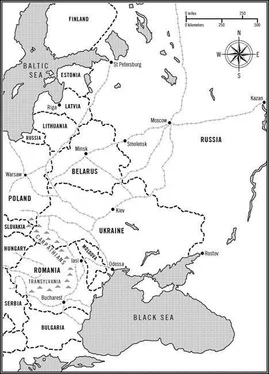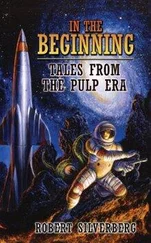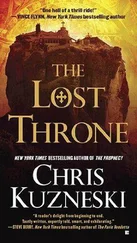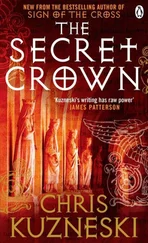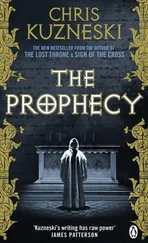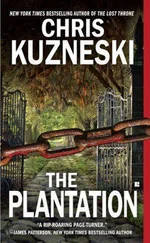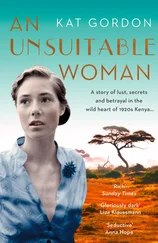Chris Kuzneski - The Hunters
Здесь есть возможность читать онлайн «Chris Kuzneski - The Hunters» весь текст электронной книги совершенно бесплатно (целиком полную версию без сокращений). В некоторых случаях можно слушать аудио, скачать через торрент в формате fb2 и присутствует краткое содержание. Жанр: Криминальный детектив, на английском языке. Описание произведения, (предисловие) а так же отзывы посетителей доступны на портале библиотеки ЛибКат.
- Название:The Hunters
- Автор:
- Жанр:
- Год:неизвестен
- ISBN:нет данных
- Рейтинг книги:5 / 5. Голосов: 1
-
Избранное:Добавить в избранное
- Отзывы:
-
Ваша оценка:
- 100
- 1
- 2
- 3
- 4
- 5
The Hunters: краткое содержание, описание и аннотация
Предлагаем к чтению аннотацию, описание, краткое содержание или предисловие (зависит от того, что написал сам автор книги «The Hunters»). Если вы не нашли необходимую информацию о книге — напишите в комментариях, мы постараемся отыскать её.
The Hunters — читать онлайн бесплатно полную книгу (весь текст) целиком
Ниже представлен текст книги, разбитый по страницам. Система сохранения места последней прочитанной страницы, позволяет с удобством читать онлайн бесплатно книгу «The Hunters», без необходимости каждый раз заново искать на чём Вы остановились. Поставьте закладку, и сможете в любой момент перейти на страницу, на которой закончили чтение.
Интервал:
Закладка:
Cobb intentionally caught the Frenchman’s eye so Papineau would know exactly what he’d been doing. He wanted to make it clear to Papineau that he understood the situation. Papineau, in turn, seemed pleased that his secret had stumped Cobb … at least for the time being.
The focus of the room was a large video screen — a nautical chart — that completely covered the far wall, facing long couches and amply padded easy chairs. The room had the same showroom quality Cobb had found strange in the upper rooms: a ‘just removed the plastic’ feeling — even, somehow, the gourmet food they had found in the kitchen.
Everyone took up positions in front of the nautical map. Papineau pressed a button on a remote control. The lights dimmed, and the sea map vanished, revealing a land map of Eastern Europe, circa 1914. The map slowly zoomed on a shape that was colored yellow.
Papineau stared at the group. ‘Romania is located at the crossroads of Central and Southwestern Europe, on the lower Danube River.’ He turned and aimed a laser pointer at the map wall, and a red dot appeared. ‘Ukraine to the northeast, Austria-Hungary to the west, Serbia to the southwest, and Bulgaria to the south. Its capital city is Bucharest, currently the sixth largest city in the EU.’
‘Population?’ Cobb asked.
‘Romania or Bucharest?’
Cobb smiled. ‘Go for broke. Both.’
‘Now or in 1914?’
‘Your choice.’
Staring at his phone, Garcia answered for him. ‘Modern-day Romania has approximately twenty-two million people. Bucharest, around two million.’
‘Thanks,’ Cobb said, with a sidelong glance at Garcia. His curiosity was satisfied. Papineau was not immersed in whatever they were about to do. He knew only what he needed to know.
‘Ms Park, perhaps you can fill in the blanks before World War One,’ Papineau said.
That suggestion straightened her posture and brightened her eyes. ‘Confederated in 1859, it adopted one of the most advanced constitutions of its time in 1866,’ she said in a clear, concise voice. ‘This allowed for the modernization of the country outside the previous dependence on the Ottoman Empire. The Ottoman Empire, of course, was one of the largest and longest empires in history, lasting from 1299 until 1923, and at its height stretched from southeast Europe to North Africa to western Asia-’
‘Stay in country,’ Papineau suggested.
She adjusted without hesitation. ‘Romania declared its independence from the Ottoman Empire in 1877. It was internationally recognized in 1878 and proclaimed the Kingdom of Romania in 1881. Under the reign of King Carol the First — who was named ruling prince in 1866 — the country enjoyed an era of relative stability and prosperity-’
‘With the king, of course, being the most prosperous,’ Papineau interjected.
‘-he ruled for forty-eight years, the longest rule by an individual that Romania has ever known.’
‘Then came the First World War,’ Papineau prompted.
‘Yes,’ Jasmine said. ‘King Carol the First was German-born, so he wanted to side with his homeland, which was in league with Austria-Hungary and Italy. The Romanian people, however, wanted to ally with England, France, and Russia. Unbeknownst to anyone, the king had already signed a pact with the German-led Triple Alliance in 1883.’
She paused to make sure everyone was keeping up with her. They were.
‘There was an emergency meeting with his court and cabinet,’ she said without inflection. ‘There was a strong disagreement between the king and his people. His death on September twenty-seventh, 1914, at the age of seventy-five, was blamed on the stress of this break with his subjects.’
‘Very good, thank you,’ Papineau said. ‘I’ll take it from there.’
He turned from Jasmine to address the entire group. ‘Romania delayed its decision to enter the war until 1916. They had other, more pressing concerns.’
The Frenchman turned back to the map and pressed the remote control. Images of gold coins, bars, bricks, armor, decorations, accessories, jewelry, dishes, tableware, and even furniture danced before their eyes. ‘The new leaders quickly grasped that whether the Germans invaded or were invited in, the nation’s treasures were in danger of being seized. Thus, the ad hoc administration made the difficult decision to send it out of their country for safekeeping in a series of rail shipments.’
The image changed to a map of Eastern Europe. An animated arrow grew out of Romania’s top right corner, passing through the countries to the northeast and ending some fifteen hundred miles away.
McNutt groaned at the sight.
‘We are interested in one of those treasure trains,’ Papineau continued. ‘One in which almost a hundred tons of gold and jewels were sent away.’
Sarah’s eyes lit up in thought. ‘In modern terms, how much loot?’
Papineau smiled. ‘Billions.’
17
Cobb stared at the map. According to the animation, the treasure had been taken from Romania to Russia. Amongst the vast quantity of details he had learned about the Soviets during his years in the service, three things about Mother Russia had always stuck with him: it had eight time zones, widespread poverty, and a pervasive black market .
Cobb was excited, but he was not pleased.
Jasmine continued her history lesson. ‘Germany controlled Central Europe, so the Romanians saw no safe way of getting the gold to where they wanted to send it — the United States or the United Kingdom. They considered Denmark and Sweden next, but German submarines ruled the North Sea.’
‘Those Germans really knew how to wage war, huh?’ McNutt interjected.
‘Only to a point,’ Papineau said, with a flourish of French pride.
‘So the Romanians felt that there was no other choice,’ Jasmine said. ‘They made a treaty with tsarist Russia. The Red Army would safeguard the treasure until after the war.’
‘And then — oops! — they lost it,’ Sarah said.
‘You’re getting ahead of us,’ Papineau said. ‘Jasmine, tell them more about the players involved.’
‘On December the eleventh, 1916, General Mossoloff extended a written guarantee promising the safety of the Romanian National Treasure. He had this authority as the Charge d’Affaires of Russia in Romania — basically, he gave the final opinion on all Russian matters in Romania. Three days later Mossoloff and Ion Antonescu, the Finance Minister of Romania, signed what is known as the Romanian-Russian Protocol. That guaranteed, in great detail, the transport, safekeeping, and return of the treasure. Before the ink of their signatures was dry, Russia took possession — temporarily, the Romanians believed — of seventeen rail cars of Romanian gold. There were over fifteen hundred crates containing over one hundred tons. Worth roughly three hundred million dollars at the time, or upwards of five billion dollars in today’s market.’
The recitation was met by silence. It wasn’t the silence of the dumbstruck, but rather the mute inability of anyone in the room to fully process the amount in question.
‘That wasn’t all,’ Jasmine continued. ‘Also onboard the seventeen rail cars were crates containing Queen Maria’s jewelry.’
‘And that was just the first shipment?’ Cobb asked.
Papineau nodded. ‘Twenty-four additional train cars were sent in 1917. These transported more gold and money from vaults of the state’s financial institutions, as well as cherished jewelry and other historical artifacts from state and private collections.’
‘Jewelry?’ Sarah asked.
Papineau nodded. ‘Bronze Age jewelry from approximately 1500 BC; Dacian jewels, precious stones and gold mined from their lands before the formation of Romania; jewelry belonging to the Wallachian and Moldavian ruling class; and the Romanian royal jewels. Even at that time, it was worth one and a half billion dollars, give or take.’
Читать дальшеИнтервал:
Закладка:
Похожие книги на «The Hunters»
Представляем Вашему вниманию похожие книги на «The Hunters» списком для выбора. Мы отобрали схожую по названию и смыслу литературу в надежде предоставить читателям больше вариантов отыскать новые, интересные, ещё непрочитанные произведения.
Обсуждение, отзывы о книге «The Hunters» и просто собственные мнения читателей. Оставьте ваши комментарии, напишите, что Вы думаете о произведении, его смысле или главных героях. Укажите что конкретно понравилось, а что нет, и почему Вы так считаете.
